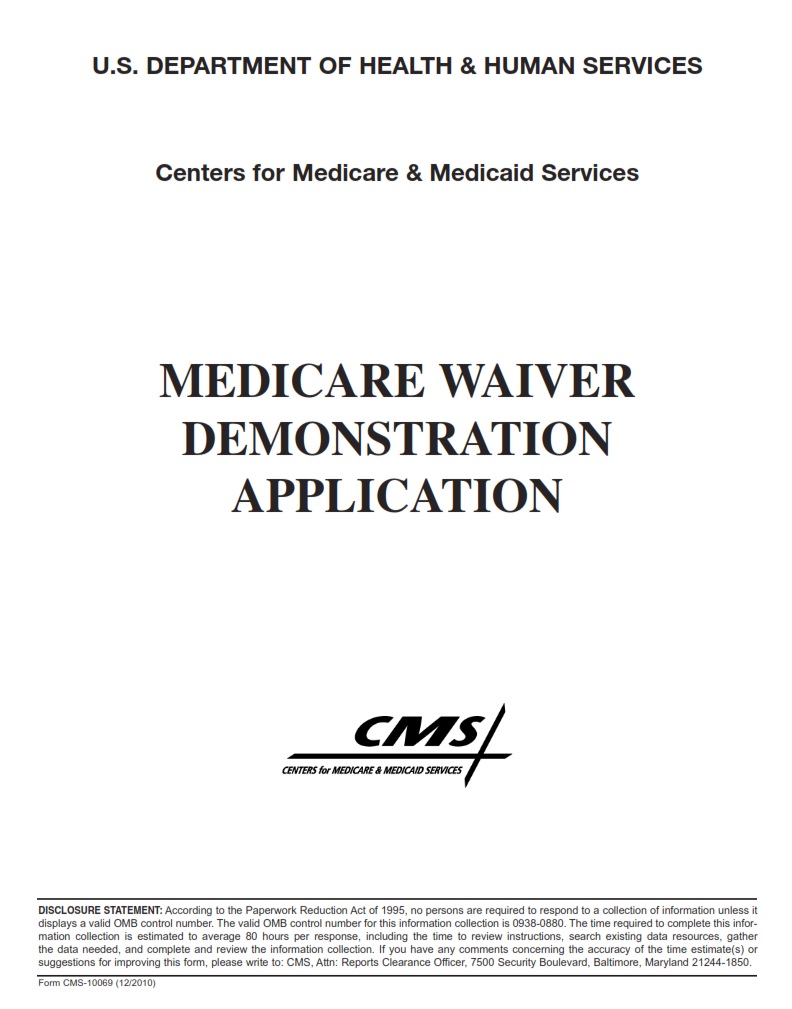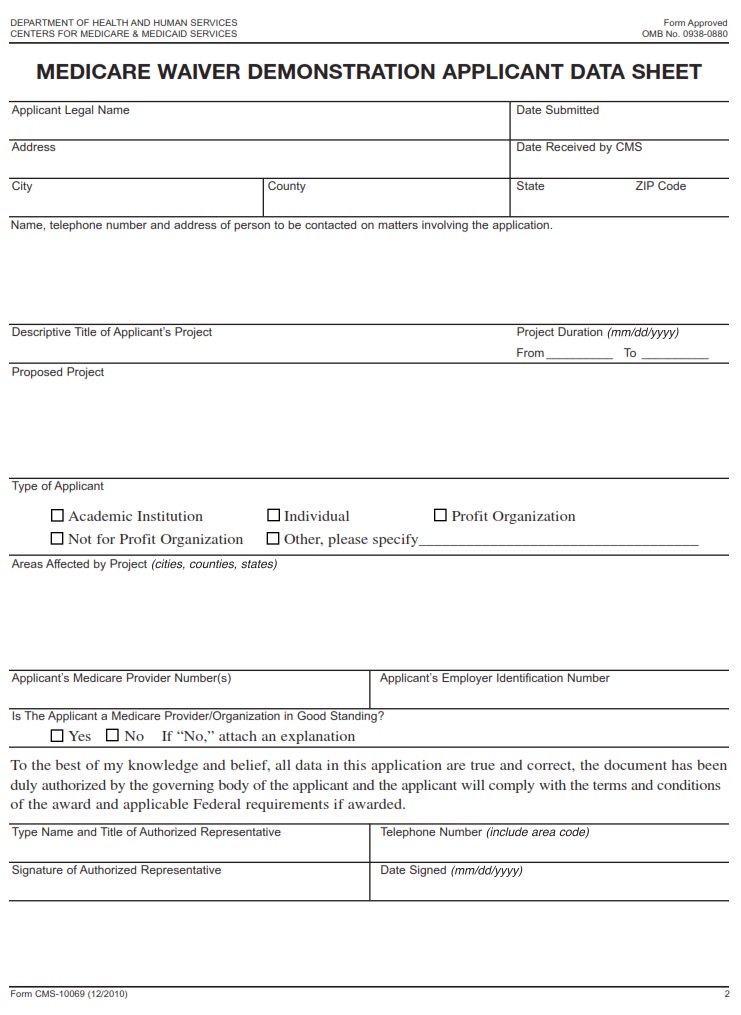CMSFORM.ORG – CMS 10069 – Medicare Waiver Demonstration Application – In the ever-evolving landscape of healthcare policy, one program stands out as a beacon of innovation and possibility: CMS 10069 – the Medicare Waiver Demonstration Application. At its core, this initiative represents a bold step towards reshaping the way we approach healthcare delivery for older adults in America. Imagine a world where traditional barriers to access are dismantled, where cutting-edge treatments are readily available, and where patient outcomes take center stage. This isn’t just a dream – it’s the vision driving the application process for CMS 10069, promising to revolutionize how Medicare services are delivered and received across the nation. In this article, we’ll delve into the intricacies of this groundbreaking program, exploring its potential impact on both patients and providers alike.
Download CMS 10069 – Medicare Waiver Demonstration Application
| Form Number | CMS 10069 |
| Form Title | Medicare Waiver Demonstration Application |
| Published | 2013-12-31 |
| O.M.B. | 0938-0880 |
| File Size | 203 KB |
CMS 10069 - Medicare Waiver Demonstration Application (2581 downloads )
What is a CMS 10069?
CMS 10069, also known as the Medicare Waiver Demonstration Application, is a crucial form used in the healthcare industry to request waivers for specific Medicare regulations. This application allows healthcare providers and organizations to propose innovative programs or interventions that aim to improve patient care and outcomes within the Medicare system. By seeking waivers through CMS 10069, applicants can establish demonstration projects that test new approaches to delivering healthcare services and analyze their impact on cost-effectiveness and quality of care.
The CMS 10069 application process involves a detailed submission outlining the proposed project’s objectives, methodology, expected outcomes, and budget considerations. It requires thorough documentation and justification for why a waiver is necessary for the project’s implementation. Successful approval of a CMS 10069 application can lead to significant advancements in healthcare delivery, paving the way for transformative initiatives that address critical challenges within the Medicare program. Ultimately, CMS 10069 serves as a gateway for driving innovation and fostering collaboration in healthcare policy and practice.
Where Can I Find a CMS 10069?
One of the best places to find information about CMS 10069 is on the official Medicare website. Here, you can access detailed resources and guidelines regarding the waiver demonstration application process. Additionally, reaching out to local healthcare facilities or contacting Medicare representatives directly can provide valuable insights into obtaining a CMS 10069 form.
For those seeking further assistance or clarification, consulting with legal experts specializing in Medicare regulations may be beneficial. These professionals can offer expert guidance on completing the CMS 10069 application accurately and ensuring all necessary information is included for submission. Ultimately, staying informed and proactive in your pursuit of a CMS 10069 waiver will increase your chances of a successful application process.
CMS 10069 – Medicare Waiver Demonstration Application
The CMS 10069 – Medicare Waiver Demonstration Application is a crucial document that plays a significant role in shaping the healthcare landscape. This application allows for innovative programs and services to be tested within the Medicare system, providing valuable data and insights on potential improvements. By granting waivers, CMS empowers organizations to experiment with new care delivery models, ultimately aiming to enhance patient outcomes and reduce costs.
One of the key benefits of the Medicare waiver demonstration application is its ability to foster collaboration between healthcare providers, insurers, and policymakers. Through this process, stakeholders can come together to test ideas and solutions that have the potential to revolutionize healthcare delivery. Additionally, these demonstrations often lead to policy changes at a broader level, influencing how future Medicare programs are structured and implemented.

